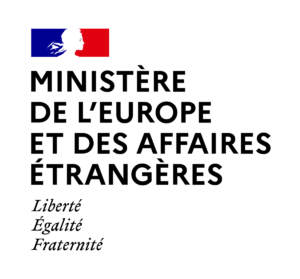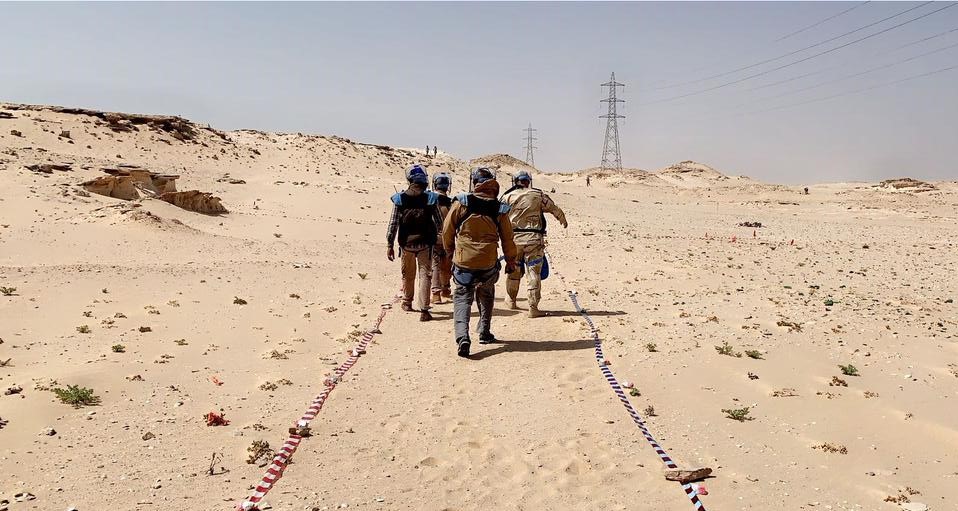Interview with the Head of Section of the National Humanitarian Demining Program for Development in Mauritania
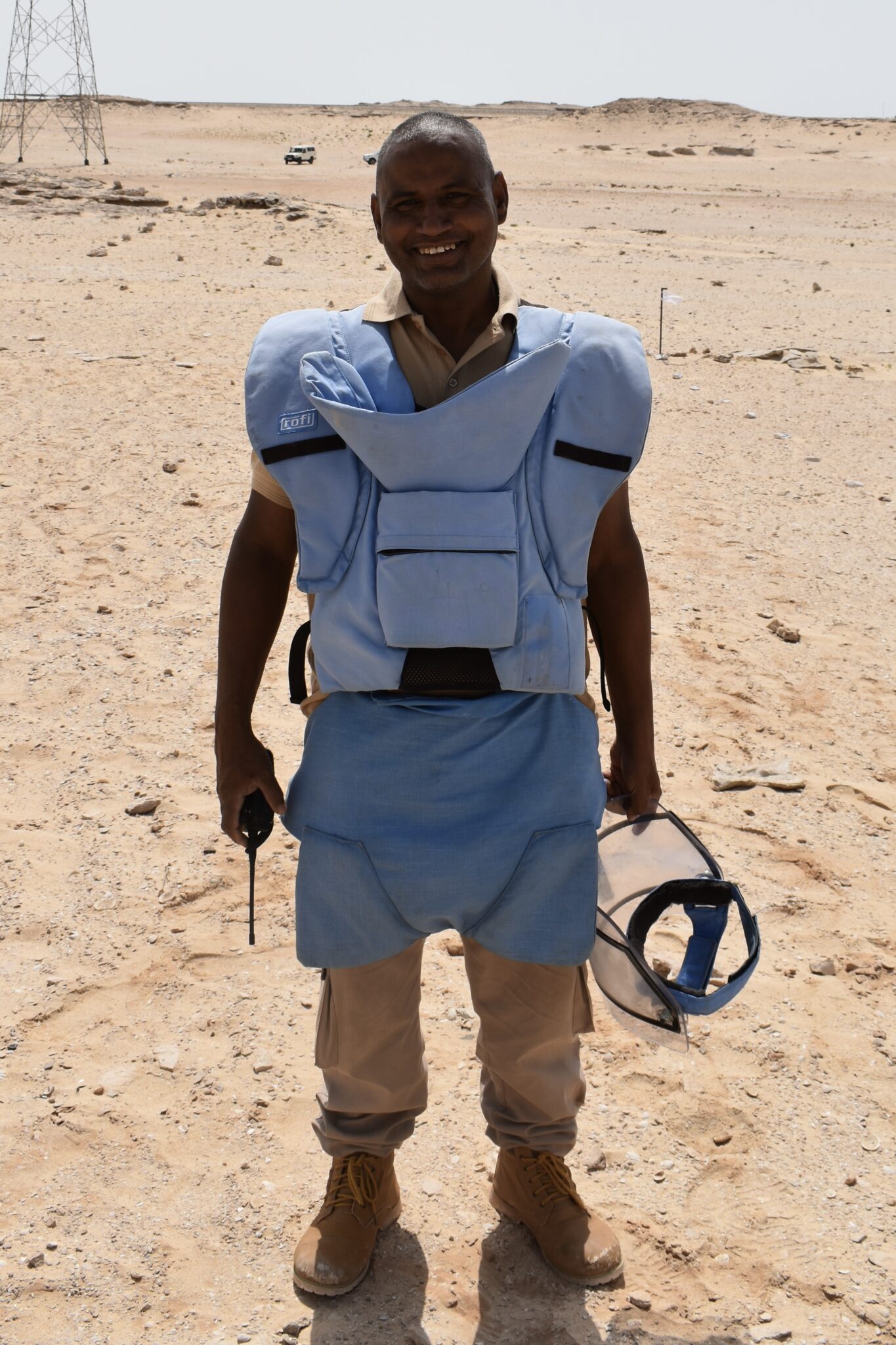
Chief Warrant Officer Abdawa Abdel Vetah Bowba, PNDHD section head
Chief Warrant Officer Abdawa Abdel Vetah Bowba is Head of Section at the National Humanitarian Demining Program for Development, HAMAP-Humanitaire’s local partner in Mauritania on the project which aims to ensuring the safety of the civilian population through demining and education on the risks of explosive devices. We asked him about his commitment to demining his country and his day-to-day work.
How do you ensure the safety of deminers during mine clearance operations? What protocols have been put in place to deal with any emergencies?
I make sure that operations are carried out in accordance with the operational procedures that were jointly established by PNDHD and HAMAP-Humanitaire at the start of operations. I also make sure that personal protective equipment is worn at all times and that safety distances between deminers are respected during operations. As there are anti-tank mines in this area, the safety distance between deminers is 50 meters (25 meters if there were only anti-personnel mines).
Finally, the presence of two nurses and two ambulances in the demining zone guarantees rapid intervention by emergency services and immediate transfer to hospital in the event of an accident during operations.
A medical evacuation procedure is in place, and demining teams have been trained in this procedure prior to the start of operations. The section chief ensures that everyone involved knows their role, notably by organizing a medical evacuation exercise at least once a month. In addition, the ambulance drivers have mapped out the route from the danger zone to the hospital, to ensure that as little time as possible is lost in the event of an evacuation.
How long have you been involved in mine clearance operations?
I joined the Mauritanian army in 1998. I then specialized as a bomb disposal expert in 2000. I’ve been supervising mine clearance operations since 2011. I hold the EOD3+ qualification, the highest qualification in mine clearance, which also enables me to work on improvised explosive devices.
What’s the most rewarding part of your job, and what motivates you to continue despite the risks involved?
I’m a son of my country, I do this job to save the lives of my fellow citizens. As a member of the army, it’s also my duty to serve my country by supervising mine clearance operations. It’s humanitarian work. Even if I were in another country, I’d still be doing the same job to save lives.
How do the local communities perceive this demining project near the town of Nouadhibou? Were they aware of the presence of mines on the Nouadhibou peninsula?
Yes, local communities are aware that there is a mined area near the town of Nouadhibou. However, people from elsewhere (travelers, nomads, fishermen) are not aware of the existence of mined areas in the region.
Local communities are aware that a demining project is underway, as they regularly see deminers’ vehicles passing by, bearing the logos of PNDHD and HAMAP-Humanitaire. They are also aware of the existence of a humanitarian demining office in Nouadhibou.
The project is well received and accepted by the local population. It is not unusual for local residents to express their support for the demining teams working in the area.
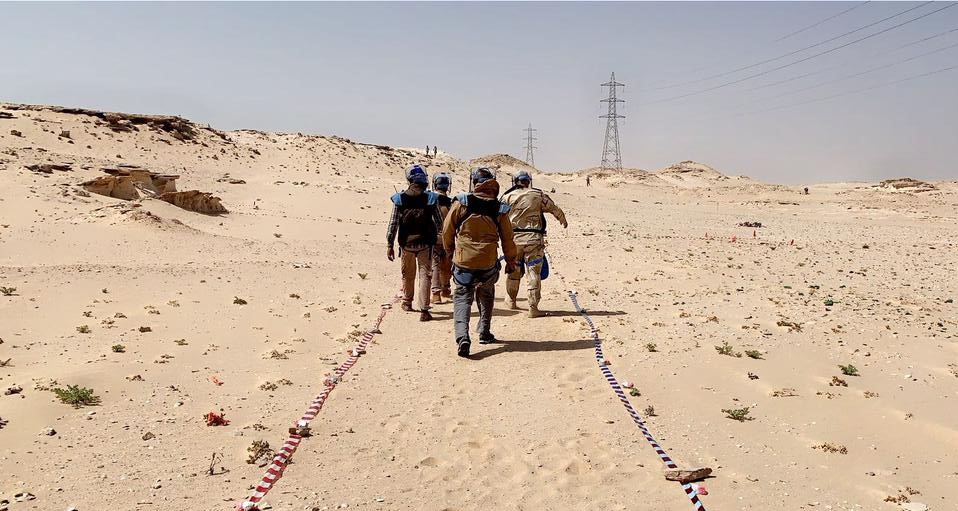
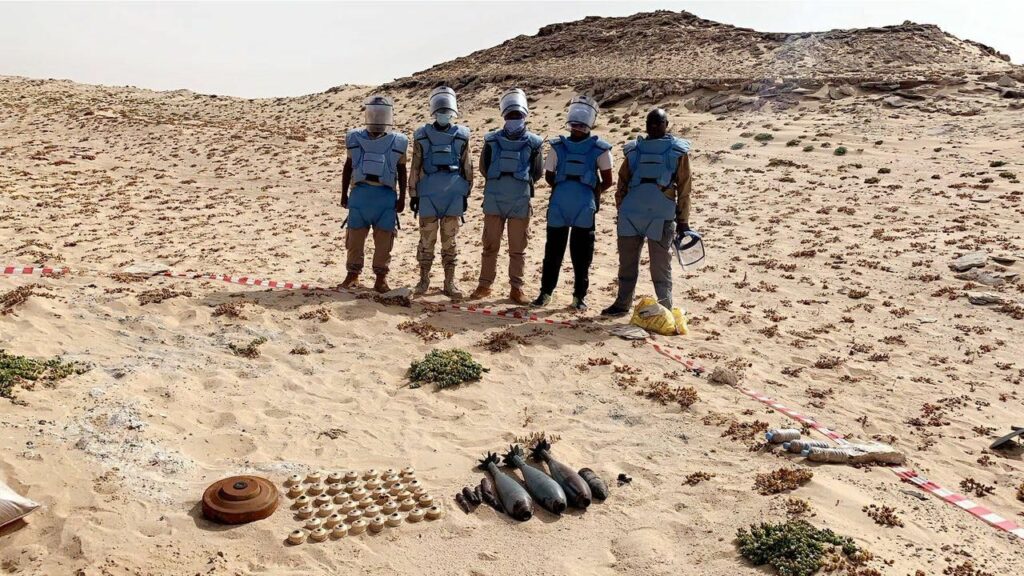
This project is funded by the Centre de Crise et de Soutien of the French Ministry of Europe and Foreign Affairs.
